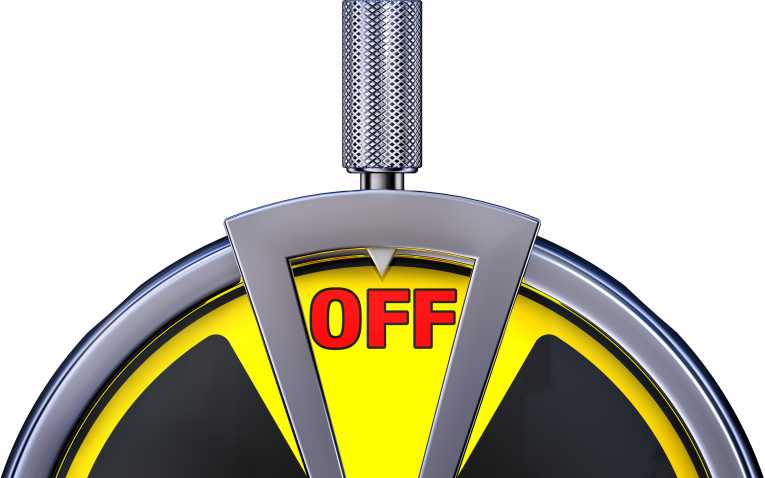It may not be as fast-moving as the tsunami that devastated the north-east coast of Japan in March. But the tidal surge of anti-nuclear sentiment rolling around the world has been just as destructive of hopes for a 'nuclear renaissance' - something seemed to be on the card only 12 months ago. Now that wave has returned back to its point of origin. The Prime Minister of Japan has bowed to the post-Fukushima reality, by announcing the need for Japan to aim to be 'a society that is not dependent on nuclear power generation."
That follows hard on the heels of announcements by Germany, Italy and Switzerland that they would halt their nuclear programs, and phase out the existing nuclear reactors. In all three cases, a major swing in opinion, against continued use of nuclear, pressured politicians to act. Opinion polls by Ipsos in 24 countries showed 62% of people opposed to nuclear power - a leap of 26%, which was linked directly to the images of the exploding nuclear reactors at Fukushima.
So does this mean that nuclear power is a dead duck? And if so, what will this mean for a world that has variously dabbled with, or become reliant on, nuclear-fission for power? After all, with the heat on to replace greenhouse-gas emitting fossil-fuels, not having one of the few 'in-place' low-carbon power sources in the quiver of alternatives could be a problem.
As far as the immediate future of nuclear power goes, some nations that are heavily dependent on nuclear power still have a relatively strong support for the technology. In the US, which has over 100 nuclear reactors supplying nearly 20% of electricity needs, just over half of the population were happy to see nuclear continue in that same poll. And in the UK, which has plans for 8 more reactors, as part of its goal to slash emissions in half by 2027, there is 50-50 split on the issue.
So it may be that many nuclear countries will weather the initial storm - after having taken heed of any safety issues to be learned from the Fukushima debacle. The US itself has just released a report from its Nuclear Regulatory Commission, outlining what needs to be done to 'harden' the nuclear safety regulations in that country. The hope seems to be that public confidence can be shored up this way.
The problem may well be a little further down the line, however. Costs for building, maintaining and decommissioning nuclear power plants continue to balloon dangerously. Just constructing a single plant can cost $10 billion, and take 4 years or more - and many such constructions overrun on their schedules. With the need for more safety regulations and more fail-safe features, costs and time-lines will only escalate.
And no-one has yet been able to deal with the fact that no-one wants nuclear waste buried in their back garden. That has led to politicians shying away from developing sites to permanently house nuclear waste. As a result, many spent fuel rods have been placed in over-crowded storage pools, on-site at nuclear plants. The dangers of that practice were highlighted again at Fukushima - there, the failure of cooling systems left the 'spent fuel ponds' boiling away, and approaching the point where a nuclear reaction could restart.
So the thorny problem of nuclear waste disposal will have to be grasped soon - and that will add another cost to be born, by either nuclear companies, or the taxpayer. Bare-boned economics may ultimately decide the fate of nuclear power in the club of countries still clinging to the 'nuclear dream'.
But if the curtain may be coming down, sooner or later, on the nuclear era, where does that leave the future of clean-power generation? It seems certain that throwing away the nuclear crutch will cause a hiccup, at the very least, in the transition to a renewable-fueled economy. In Germany - where a plan to go nuclear-free included the immediate closing of 7 old nuclear power plants - the government has been forced to admit it may need to turn one of the reactors back on, over the winter, to avoid possible power shortages.
And an extra reliance on fossil fuels, such as gas or coal, belies the idea of closing-down nuclear as an unremittingly 'green' option. It could mean there is a rise in CO2 emissions, whilst money is bought to bear on developing wind, solar and energy efficiency to bridge the energy gap left by nuclear's absence.
For those proposing a truly green and clean energy future, without radioactive fuel sources, the prize may be in the longer term. Money that would otherwise be poured into the nuclear industry could instead be used to accelerate renewables infrastructure, which may ultimately help slash carbon emissions further and faster.
However, the landscape to be left after the Japanese nuclear fall-out has yet to make itself clear. What is certain is that the waves from Fukushima will be swashing over the nuclear scene for years to come.
Top Image Credit: © Renata Holatova















